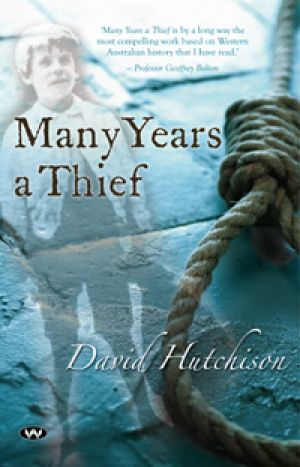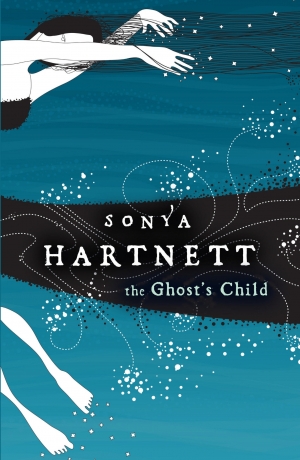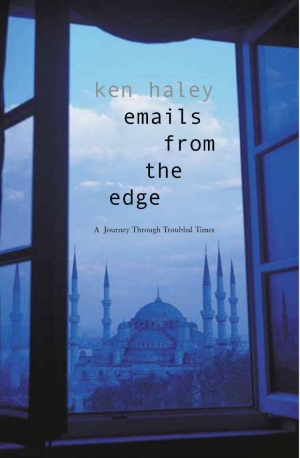Rebecca Starford
Rebecca Starford reviews 'Many Years a Thief' by David Hutchison
Rebecca Starford reviews 'The Low Road' by Chris Womersley
The resounding metaphor in The Low Road is that of a bullet wound and ‘the shock waves it sends through the body, often creating a cavity ahead of where the bullet stops. Almost as if the body accommodates the object’s anticipated trajectory and manufactures its very own injury.’ Chris Womersley’s intentions are suitably applicable to this laparoscopic image: to examine the cycle of crime, social alienation and despair, set against an uncanny dystopian landscape.
... (read more)Rebecca Starford reviews 'The Ghost's Child' by Sonya Hartnett
The style of Sonya Hartnett’s storytelling has changed considerably since she published Trouble All the Way (1984) at the age of fifteen: her finely groomed prose is much tighter than it was then. Her tales brim with nuance and, though straightforward, are disarmingly sophisticated; her weighty symbolism, saturating the most desiccated of landscapes, is one of the finest in our national literature. In an attempt to catalogue her original voice, Hartnett has often been classified as a children’s or young adult fiction writer, categories that she has resisted, often vehemently, for many years. Although her novels continue to adopt child and teenage perspectives, her literary preoccupations span all ages.
... (read more)Rebecca Starford reviews 'Love and the Platypus' by Nicolas Drayson
The naturalist has been something of a recurring figure in recent Australian historical fiction: there is Ingrid in Jessica White’s A Curious Intimacy (2007), Lindsay Simpson’s Lady Jane in The Curer of Souls (2007), and now the real-life William Caldwell, from Nicolas Drayson’s Love and the Platypus. The novel opens in 1883 with the young British naturalist arriving in Queensland. In search of the elusive platypus egg, he crosses overland to the Burnett River, where he sets up camp and begins his investigation.
... (read more)Rebecca Starford reviews 'Emails from the Edge: A journey through troubled times' by Ken Haley
Expulsion from Syria on suspicion of terrorism; an encounter with someone who might be Osama bin Laden in a Tehran bazaar; expulsion from the Hungarian parliament in hand-cuffs; an interview with the editor-in-chief of al-Jazeera: this gripping sequence of events reads more like a synopsis of a John le Carré novel than Ken Haley’s two-year journey, as detailed in Emails from the Edge. In this extraordinary collection of reminiscences by the Walkley Award-winning journalist, Haley exhibits courage and gusto in travelling through the Middle East, Asia and Europe in a wheelchair.
... (read more)Rebecca Starford reviews ‘UTS Writers’ Anthology: Making Tracks’
Making Tracks is the latest collection of poems, short stories and experimental prose by students in the prestigious writing courses at the University of Technology, Sydney. The anthology covers the themes of loss, love and self-discovery, often confronting the writers’ personal experiences from childhood and adolescence. These are tales of spiritual and actual travel within Australia and abroad, of rites of passage and of quests for identity.
... (read more)Rebecca Starford reviews 'Write Home for Me: A red cross woman in Vietnam' by Jean Debelle Lamensdorf
Towards the end of her story, Jean Debelle Lamensdorf admits that she ‘wanted to mentally shut out the horror of Vietnam – to remember only a sanitised version of our year out there’. Having spent twelve gruelling months working as a volunteer for the Red Cross, tending to the non-medical welfare of wounded ANZAC troops, Debelle Lamensdorf has succeeded in cleansing this personal account of life during one of modern history’s most bloody wars.
... (read more)Rebecca Starford reviews 'Rendezvous at Kamakura Inn' by Marshall Browne
After twenty years in the Tokyo police, Inspector Aoki knows the ‘beeping of the excrement detector in his brain was a definite warning that shit was coming down the freeway’. His declaration is indicative of this convoluted plot. Aoki, after seventeen months heading an excruciating investigation into the corrupt ‘Fatman’, a high-profile government official, discovers that his case has been irrevocably shut down. Quicker than you can shout ‘yakuza’, his journalist associate is murdered, his father dies of heart failure, his wife commits suicide and Aoki is placed under observation in a psychiatric hospital. Suspended from duty, he is sent to recover at the Kamakura Inn, an exclusive mountain retreat outside the city. But his sojourn is far from therapeutic, and Aoki is soon wrestling both the temptation of beautiful geisha and the danger of a bloodthirsty murderer running loose through the guest house.
... (read more)






